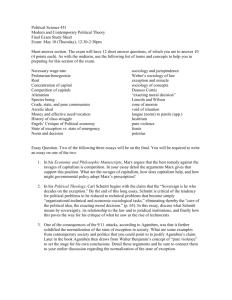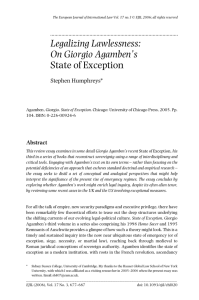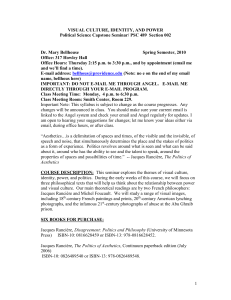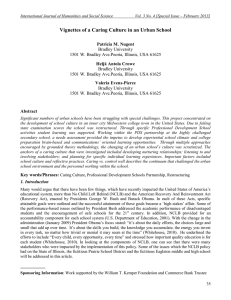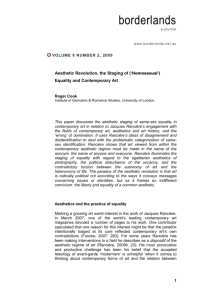States of exception on the early modern stage
advertisement
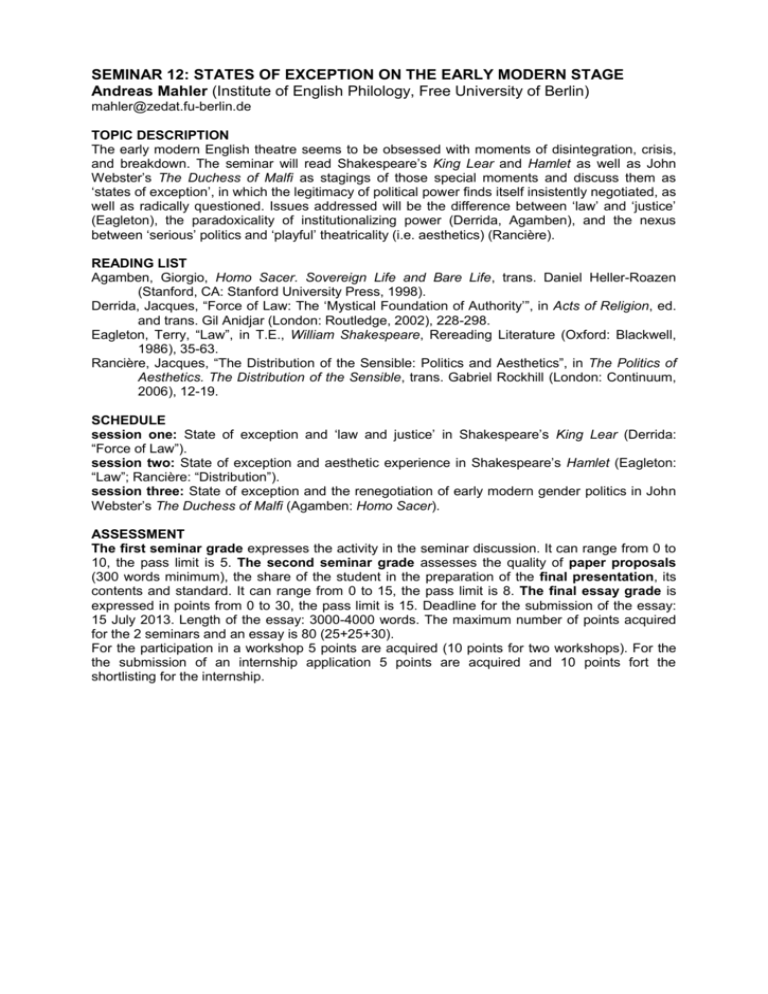
SEMINAR 12: STATES OF EXCEPTION ON THE EARLY MODERN STAGE Andreas Mahler (Institute of English Philology, Free University of Berlin) mahler@zedat.fu-berlin.de TOPIC DESCRIPTION The early modern English theatre seems to be obsessed with moments of disintegration, crisis, and breakdown. The seminar will read Shakespeare’s King Lear and Hamlet as well as John Webster’s The Duchess of Malfi as stagings of those special moments and discuss them as ‘states of exception’, in which the legitimacy of political power finds itself insistently negotiated, as well as radically questioned. Issues addressed will be the difference between ‘law’ and ‘justice’ (Eagleton), the paradoxicality of institutionalizing power (Derrida, Agamben), and the nexus between ‘serious’ politics and ‘playful’ theatricality (i.e. aesthetics) (Rancière). READING LIST Agamben, Giorgio, Homo Sacer. Sovereign Life and Bare Life, trans. Daniel Heller-Roazen (Stanford, CA: Stanford University Press, 1998). Derrida, Jacques, “Force of Law: The ‘Mystical Foundation of Authority’”, in Acts of Religion, ed. and trans. Gil Anidjar (London: Routledge, 2002), 228-298. Eagleton, Terry, “Law”, in T.E., William Shakespeare, Rereading Literature (Oxford: Blackwell, 1986), 35-63. Rancière, Jacques, “The Distribution of the Sensible: Politics and Aesthetics”, in The Politics of Aesthetics. The Distribution of the Sensible, trans. Gabriel Rockhill (London: Continuum, 2006), 12-19. SCHEDULE session one: State of exception and ‘law and justice’ in Shakespeare’s King Lear (Derrida: “Force of Law”). session two: State of exception and aesthetic experience in Shakespeare’s Hamlet (Eagleton: “Law”; Rancière: “Distribution”). session three: State of exception and the renegotiation of early modern gender politics in John Webster’s The Duchess of Malfi (Agamben: Homo Sacer). ASSESSMENT The first seminar grade expresses the activity in the seminar discussion. It can range from 0 to 10, the pass limit is 5. The second seminar grade assesses the quality of paper proposals (300 words minimum), the share of the student in the preparation of the final presentation, its contents and standard. It can range from 0 to 15, the pass limit is 8. The final essay grade is expressed in points from 0 to 30, the pass limit is 15. Deadline for the submission of the essay: 15 July 2013. Length of the essay: 3000-4000 words. The maximum number of points acquired for the 2 seminars and an essay is 80 (25+25+30). For the participation in a workshop 5 points are acquired (10 points for two workshops). For the the submission of an internship application 5 points are acquired and 10 points fort the shortlisting for the internship.




